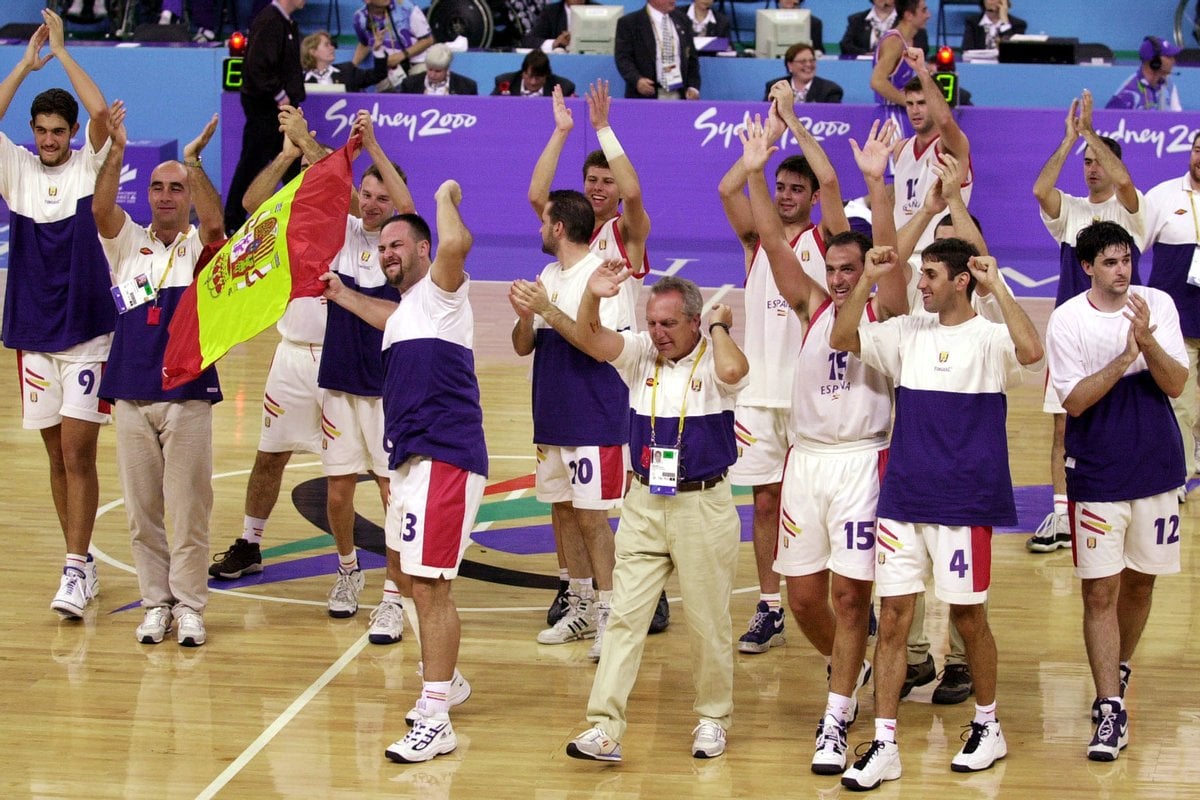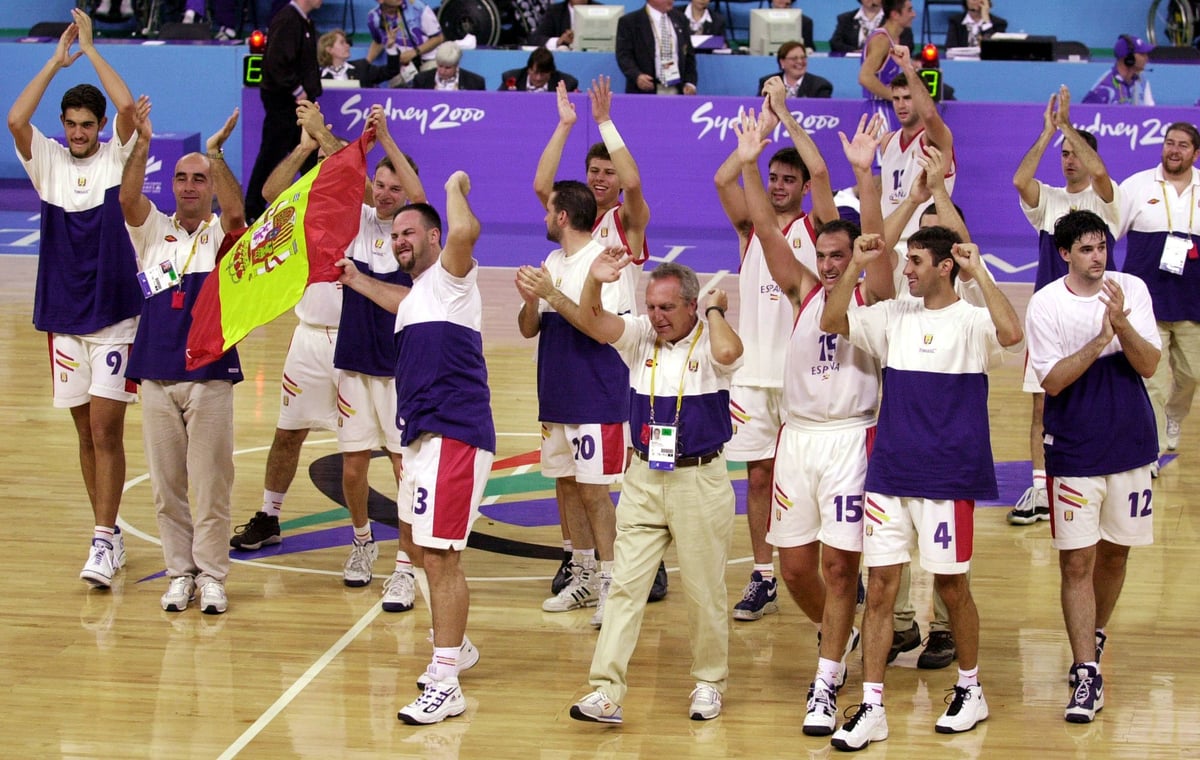
On October 24th, 2000, Spain rejoiced as their Paralympic basketball team triumphed against Russia in a thrilling 87 to 63 win. Their team of 12 were each awarded gold medals and flowers and praise, before they sung their national anthem on the world stage. It was part of Spain's most successful Paralympics yet - winning 107 medals and placing third overall, behind Australia and Britain.
But beneath their cheers was a callous lie.
Upon returning home, player Carlos Ribagorda published a story in which he unveiled what would become one of the most infamous cases of cheating in Paralympic history.
 Players and coaching staff of the Spanish intellectual disabilty basketball team celebrate their victory over Russia in the final at the Paralympic Games in Sydney, Australia, Tuesday, October 24, 2000. Image: AAP.
Players and coaching staff of the Spanish intellectual disabilty basketball team celebrate their victory over Russia in the final at the Paralympic Games in Sydney, Australia, Tuesday, October 24, 2000. Image: AAP.
